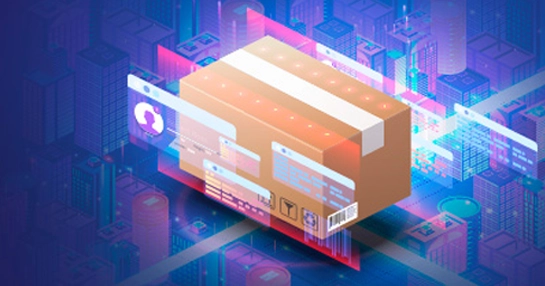-
GEP Software
-
- Procurement Software
- Direct Procurement Software
- Indirect Procurement Software
- Unified Source-to-Pay
- Source-To-Contract Software
- Procure-to-Pay
- Midsize & High Growth Enterprises
- Key Capabilities
- Spend Analysis
- Sourcing
- Contract Lifecycle Management
- Supplier Lifecycle Management
- Third-Party Risk Management
- Purchasing
- Payments
- Data Analytics and Reporting
- Do more with GEP SMART
- Intake Management & Orchestration
- Intelligent Category Management
- Tail Spend Management
- Cost Data & Analytics (GEP COSTDRIVERS)
- AI-First Supply Chain Management
- Supply Chain Visibility and Execution
- Logistics Visibility
- Inventory and Warehouse Management
- GEP Multienterprise Collaboration Network
- Supply Chain Control Tower
- Field Services
- Supply Chain Collaboration & Planning
- Supply Chain Planning
- Purchase Order Collaboration
- Forecast Collaboration
- Capacity Collaboration
- Quality Management Software
- Should-Cost Modeling
- Direct Material Sourcing
-
-
GEP Strategy
-
GEP Strategy
Unrivaled supply chain and procurement expertise + the transformative power of AI
Supply Chain Consulting
- Environmental, Social and Governance
- Sustainability Consulting Services
- Socially Responsible Sourcing
- Scope 3
- Demand and Supply Chain Planning
- Collaborative Planning
- Source To Contract
- Procure To Pay
- Inventory Strategy & Management
- Operations & Manufacturing Excellence
- GEP Total Inventory Management Solution
- Network Strategy & Optimization
- Warehousing & Transportation Management
-
-
GEP Managed Services
-
GEP Managed Services
World-class skills, experience and know-how — amplified by the power of AI
-


How AI is Transforming Supply Chain Management
Today’s supply chains are more complex and unpredictable than ever. To stay competitive, companies must embrace artificial intelligence (AI).
AI is no longer a luxury but a necessity for supply chain transformation. With 92% of IT executives planning tech upgrades to integrate AI, the shift is undeniable.
In this episode, we explore findings from GEP’s white paper on how AI is redefining supply chain management. From detecting inventory fraud to predicting market trends, AI offers solutions that were once unimaginable.
What You'll Hear:
- How AI can optimize delivery routes, predict inventory needs and improve decision-making
- Why starting small with pilot projects leads to scalable success
- How AI simulations can prepare you for disruptions
This is a audio recording of a recent podcast.
PODCAST SUMMARY
In this podcast, the hosts delve into how artificial intelligence (AI) is reshaping supply chain management, drawing from GEP’s white paper, Not Just Hype: Why AI Is Critical for Supply Chain Transformation. As supply chains grow more complex and disruptions become commonplace, businesses are turning to AI for innovative solutions to modernize operations and gain a competitive edge.
The Need for AI in Supply Chains
The podcast begins by emphasizing that AI and machine learning are no longer just buzzwords—they’re essential tools for navigating today’s challenging supply chain landscape. According to the white paper, 92% of IT executives are planning to upgrade their technology to incorporate AI, driven by the increasing frequency of disruptions and the need for smarter, more resilient systems.
However, AI’s role isn’t to replace human workers. Instead, as GEP’s Rocky Subramanian explains, AI aims to free up human capital for strategic thinking, empowering professionals to focus on complex, high-value decisions that technology cannot handle alone.
Foundational Requirements: Data Quality and ERP Integration
A significant portion of the discussion focuses on the foundational elements needed for AI to succeed in supply chains. High-quality data and end-to-end enterprise resource planning (ERP) systems are critical. The podcast highlights how ERP systems connect different facets of a business—procurement, manufacturing, inventory, and shipping—providing a unified view of the supply chain.
Adoption of end-to-end ERP solutions is growing, predicted to rise from 23% to 28% in the next year alone. However, challenges such as data silos and legacy systems continue to hinder seamless integration, with 42% of executives citing integration as their biggest hurdle.
AI’s Capabilities: Transforming Operations
The hosts explore several practical applications of AI in supply chain management:
- Predictive Analytics: AI can analyze historical data to forecast market trends, optimize inventory, and inform purchasing strategies. For example, it can determine the best time to buy materials to save costs.
- Fraud Detection and Quality Control: AI tools can identify irregularities in inventory and ensure product quality.
- Generative AI Simulations: Unlike traditional analytics, generative AI creates new data scenarios to simulate potential disruptions, such as a supplier strike. This allows businesses to prepare strategies proactively, instead of reacting after a crisis occurs.
GEP’s VP of AI and machine learning, Servesh Seetharaman, predicts that generative AI technologies, like ChatGPT, will play a transformative role in supply chains by offering predictive capabilities that go beyond historical data analysis.
Challenges and Recommendations
Despite AI’s immense potential, the podcast stresses the importance of a grounded approach. Companies should avoid overhauling their entire systems at once and instead focus on smaller pilot projects. Testing AI on specific supply chain issues—such as optimizing delivery routes or balancing inventory—can provide quick wins, build internal support, and pave the way for broader implementation.
The discussion also emphasizes the need for skilled professionals who can bridge the gap between supply chain management and AI technology. These individuals are crucial for interpreting AI insights and translating them into actionable strategies.
Embracing AI for Future Success
The podcast concludes by urging supply chain professionals to embrace AI as a vital tool for navigating a rapidly evolving industry. AI is not a silver bullet, but a means to enhance decision-making, streamline operations, and anticipate challenges before they arise.
As businesses face increasing pressure to modernize, those that adopt AI and integrate it effectively into their operations will gain a significant competitive advantage. The future of supply chain management is here, and AI is at its core.
TO LISTEN, Please Enter your EMAIL ID
JUST A FEW MORE THINGS ABOUT YOU








